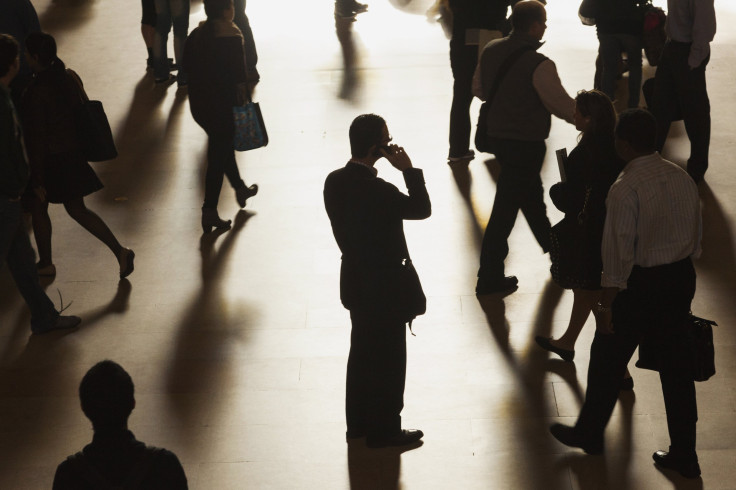'Beacons' Now Pervasive In Retail, Events Despite Privacy Concerns

New Yorkers nervous over the news that advertising beacons were attached to phone booths throughout Manhattan may take some solace in their removal, but questions remain about the small sensors: What are the privacy implications of the technology? How widely are they deployed? Who makes money off them?
What seems clear about beacons is that they are not going anywhere.
Low-powered beacons, about the size of a deck of cards, have been used at museums, sporting events and retail stories, to name just a few locations. They transmit a signal to any Bluetooth-enabled phone whose owners have authorized their apps to track their location. If someone has an app for the Metropolitan Museum of Art, for instance, walking by a certain sculpture that has a beacon attached might trigger a push notification containing extra information about the exhibit.
The same goes for retail shoppers, as a BuzzFeed investigation discovered Monday. Without informing the public, New York City authorized an advertising firm to plant beacons onto the sides of phone booths. The BuzzFeed article, which reported that at least 500 beacons were placed throughout the city, explained that New Yorkers with an app for GameStop on their phone might, not coincidentally, find a push notification on their phone advertising a new low price at the same time they walk by a brick-and-mortar store.
Within 12 hours of the report’s publication, a city spokesman told BuzzFeed the beacons would be removed, but questions had already been raised. What exactly are these things? Is this the first time they’ve been used?
Exact numbers weren’t immediately available, but multiple sources told International Business Times there’s already a growing international interest in using beacons. Privacy concerns are certainly present, but even watchdogs admit that individual users have so much control over whether they want their device to interact with beacons that the good might outweigh the bad.
“There are a number of different technologies with different privacy implications, and beacons might be the most user-friendly,” said Jules Polonetsky, the director of the Future of Privacy Forum, adding that the proximity sensors are “exceedingly common” and target both Android and iOS users.
“Beacons don’t track you. Beacons are a way that any object can say ‘I am here,’ but you need to download the app. But that doesn’t mean there are no privacy issues – I think they need to do a really good job about explaining how the operating systems work.”
Other possible uses include dropping a beacon into a sewer drain to study exactly how water flows through the pipes, pinging sports fans and advising them to use a certain stadium exit (Major League Baseball uses beacons), or providing the location of public restrooms. But there’s no denying the technology is being examined primarily for marketing purposes.
“We’re seeing retailers and events using it for customer service-oriented issues more than anything else,” said Bill Schneider, director of product marketing for Urban Airship, a mobile marketing company. “Marketing was centered on advertising for the past 100-plus years, but as consumer screens become more intimate, those old advertising methods are becoming less effective.”
Again, individuals can avoid beacons and any related push notifications by disabling Bluetooth or deleting the relevant apps. Those who don’t should essentially expect beacons to help apps analyze their movements.
The United States Tennis Association, aiming to increase attendance at the U.S. Open in August, focused on users who viewed ticket prices inside the U.S. Open app, were located in the New York metro area and had been near a U.S. Open ticket booth, which was affixed with a beacon. By combining current location and in-app behavior with proximity history, with help from beacon tracking sensors, the organizers sent “Last Minute Ticket Alerts” to 300,000 people. Of those, 32 percent bought tickets.
“Articles like the one in BuzzFeed get it wrong in assuming customers are the victim here, but ultimately customers are in control,” Schneider said, explaining that businesses that nag customers will find their apps deleted. “You have to really serve your customers.”
© Copyright IBTimes 2024. All rights reserved.




















